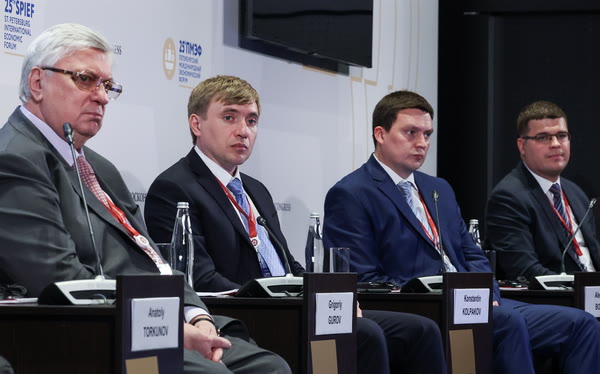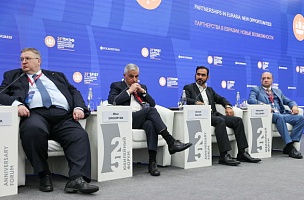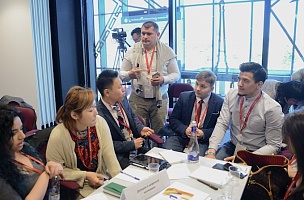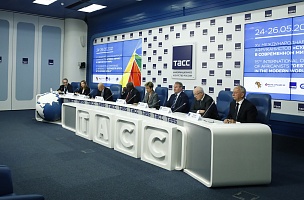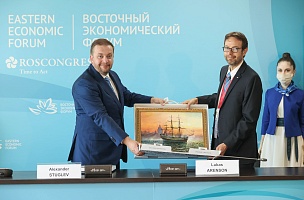Key conclusions
Russia is restructuring its diplomatic and economic relations to focus on partner states
“We are turning to those partners which we have long considered to be friendly, neutral, and well‑disposed. Currently these partners are under terrible pressure from our adversaries or countries committing unfriendly acts against Russia. We are actively assisting our government and the economic bloc to identify solutions to various problems related to logistics, transport, and finding new partners. Of course, we won’t delve into the details, but <...> attempts are being made to eradicate the role of diplomacy in relation to Russia. This is being done by expelling diplomats, closing representative offices, and bleeding them dry. Nevertheless, diplomacy is key in a number of areas, such as in relation to the East, Africa, and other territories. These include places where – if I may be self-critical – we indeed did not focus sufficiently on partners who were hoping for this kind of attention a few years back. We were a little too preoccupied with the well-trodden paths of our commodity flows and so on. Now all this has to be restructured,” Alexander Pankin, Deputy Minister of Foreign Affairs of the Russian Federation.
“Perhaps they really did once traverse a well-trodden path. It was convenient, and there was the proximity at least, in terms of logistics, exchanges, etc. However, now we need to take a broader view of the world and see that we have a range of fantastic partners, both potential and current. There are a great many of them. And we can expand our cooperation with them,” Anatoly Torkunov, Rector, MGIMO University.
Sanctions and the “cancellation” of Russia
“Of course, the hysteria surrounding sanctions and the cancellation of anything Russian, from economics to sport... Well, in terms of economics, it’s basically a war, let’s use these words. It’s geared towards destruction – not just at weakening us, but crippling us. This has fundamentally changed the volume of our work, and the nature of our work. Of course, we have to face what was once probably considered unthinkable,” Alexander Pankin, Deputy Minister of Foreign Affairs of the Russian Federation.
Establishing non-conventional diplomatic relations
“Over the past eight years – since 2014 – the Council of Young Diplomats has consistently worked to develop this concept [of horizontal diplomacy – ed.] and bring it to life. It outlines the creation of a network of unique platforms to facilitate informal communication between foreign office personnel from around the world. Experts and specialists on international affairs can also join, as can members of national elites and business representatives. These platforms are divided into multilateral and bilateral sections, and aim to unite the diplomatic service,” Konstantin Kolpakov, Chairman, Council of Young Diplomats of the Russian Foreign Ministry.
Educational and cultural exchange
“We are focusing a great deal on ways of engaging in popular diplomacy, ways we can cooperate, and smaller forms of interaction. In doing so, we are naturally preserving bilateral and multilateral platforms, as well as traditional youth forums. We hold a large number of these, which take place back-to-back with all official events. There are a few things which we are launching right now. These things have already been tested. They include summer schools, where we invite foreign students, largely from the CIS, naturally. This separate initiative is linked to international tracks in all competitions, including those by Russia – Land of Opportunity,” Grigoriy Gurov, Deputy Minister of Science and Higher Education of the Russian Federation.
“A great many foreign students study at these universities in Asia, [including in – ed.] China and India. <...> And this is also a form of diplomacy – educational diplomacy. That’s because the people who come are those who in a decade or two will be leaders in their fields. And it won’t be restricted to individual fields, either. These people will also work in the government. Of course, we consider this to be crucial. At the same time, we must not lose what we have accumulated in previous years, including as a result of collaborating under the so-called Bologna System. We must preserve the positive things which were developed, and work actively with the educational organizations we collaborated with previously. But perhaps it won’t be to the same extent,” Anatoly Torkunov, Rector, MGIMO University.
For more information, visit the Roscongress Foundation’s Information and Analytical System at roscongress.org/en.


